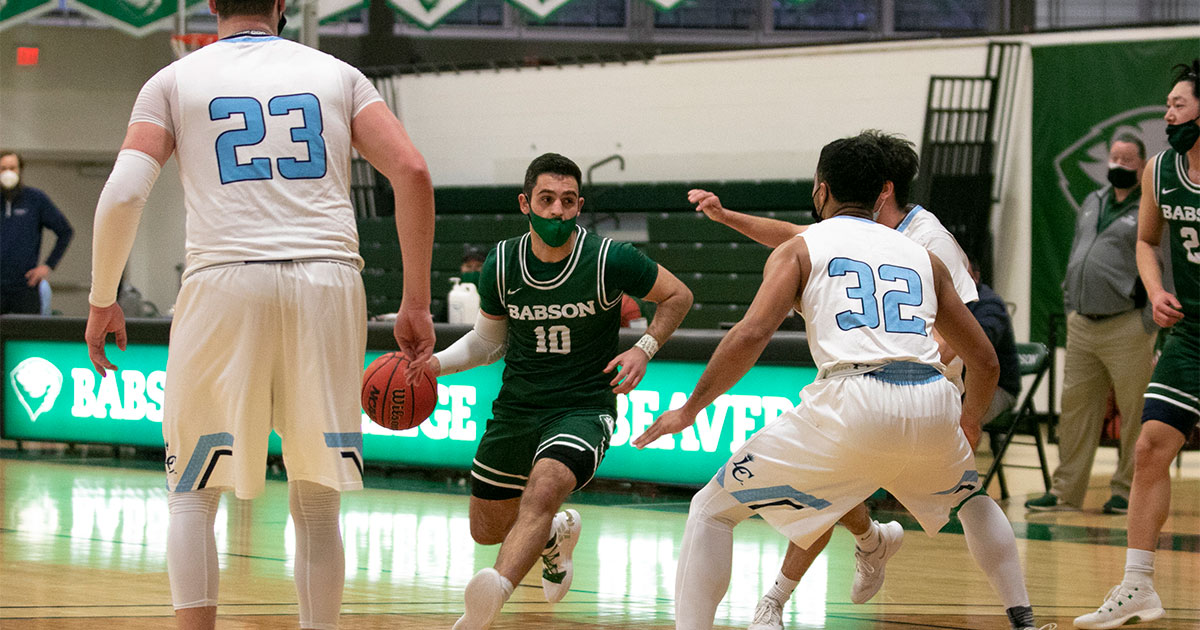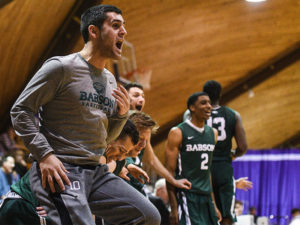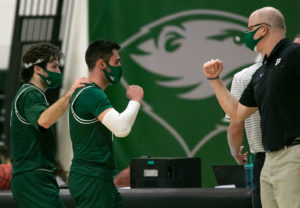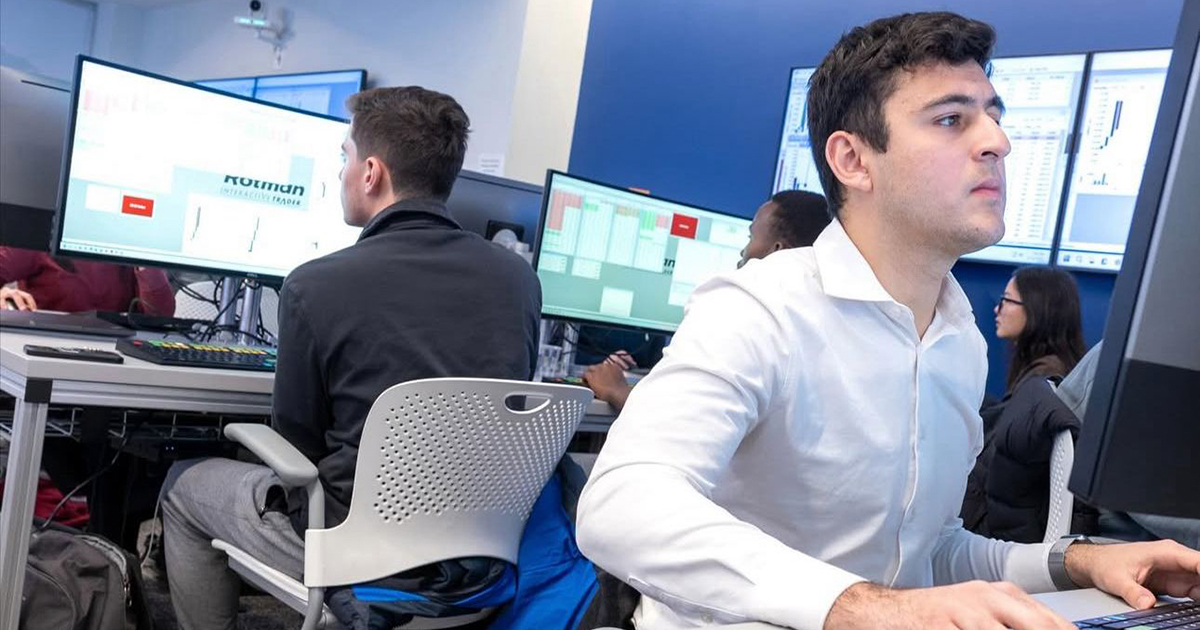Taught to Tough It Out: Male Athletes and Mental Health

Teddy Sourlis ’22 still remembers the quiet.
He was a senior in high school when he learned that a good friend had taken his life. A member of the lacrosse team and someone blessed with a wonderful, infectious laugh, Sourlis’ friend was 16 when he died.
The news left the school in shock. “No one spoke the next day,” Sourlis says. “The silence in the hallway was eerie.”
For Sourlis, who has long struggled with his own mental health issues, his friend’s death made the specter of suicide all too real. “I thought, ‘That could have been me,’ ” he says. “It was probably one of the hardest times in my life.”
In the aftermath, Sourlis tried to be supportive of others. He knew everyone was hurting. “It took a long time for our community to recover from it,” he says. In memory of his friend, Sourlis helped to organize a 5K road race for suicide prevention. It raised $120,000 for mental health awareness and proved to be an uplifting moment in a time of tragedy. “It was definitely one of my proudest moments,” he says.

Summing up the mission of Men’s Mental, Teddy Sourlis ’22 says, “My goal is to ensure that no one feels alone.”
That need to help others, to be there when they may be in pain inside, has not left Sourlis. Today, he is the CEO and founder of Men’s Mental, a nonprofit platform that focuses on the mental health of male athletes, a group that too often feels the need to suppress feelings and tough things out, while ignoring their own mental well-being. “Mental health is not something that is talked about in locker rooms,” says Sourlis, a member of Babson’s men’s basketball team.
Men’s Mental provides mental health resources, sells merchandise (with profits going to mental health research), and offers stories from male athletes talking about their internal struggles. “My goal is to ensure that no one feels alone,” Sourlis says. “My hope is to spread as much awareness as possible. I want people to realize they are not the only ones going through this.”
Candor and Courage
The mental health of athletes has received a lot of attention lately. In May, tennis star Naomi Osaka withdrew from the French Open to focus on her mental health. Then in July, gymnast Simone Biles pulled out of a number of Olympic events for the same reason.
Sourlis admires their candor and courage, and he hopes their openness will encourage other athletes to prioritize their mental health. “I think what they did was incredible,” he says. “To be at that stage, where you are at the highest level of sports and take a step away—what they did really set a precedent.”
It is a precedent that many male athletes, concerned with appearing tough and not showing weakness, may find hard to follow. That’s unfortunate, Sourlis says. “There is a difference between being tough on the court, gritty on the court, and there is the priority of yourself and your mental health,” he says. “You can play as hard as you can and not back down from anyone on the court. When you’re off the court, you have to prioritize yourself.”
Sourlis pushes back against those who criticize Osaka and Biles for taking time away from their sports. “A lot of struggles happen internally and they are not seen by the public,” he says. “Those who criticize Simone Biles haven’t been through it themselves. I know how hard it is to play a game when you’re not feeling right mentally.”

Teddy Sourlis ’22 (center) celebrates along with teammate James Welch ’22 and assistant coach David Lang.
For years, Sourlis has dealt with his mental health issues, including depression, anxiety, and attention-deficit/hyperactivity disorder. “It has been about a decade-long struggle,” he says. “It never truly goes away.” He wrote his first suicide note on the night of his eighth grade graduation, and he battled social anxiety throughout high school. On the surface, of course, everything seemed fine. “I had friends. Some would call me popular. I was on the basketball team,” he says. “People would look at me and say, ‘What are you upset about?’ ”
When he came to Babson, he was excited to join the basketball team, but then he had to undergo two major hip surgeries, which forced him to miss large chunks of playing time. He felt stripped of a big part of his identity, that of being an athlete. It was a low moment, but he did a lot of self-reflection and leaned on his teammates. “To have that community of support from my teammates—that was one of the biggest things for me,” he says.
Saving Lives
Sourlis has many future plans for Men’s Mental, which started as a class project at Babson. He wants to expand its clothing line, hold seminars for college athletes, and organize events, such as charity basketball games featuring athletes who have spoken out about their mental health. A big fundraising goal is to put together a men’s mental health gala.
He also wants to launch a sister site focusing on the mental health of women athletes. He already has added a women-focused Instagram account, in addition to its original male counterpart. “I am trying to create an inclusive environment where everyone can be seen,” Sourlis says.
“Those who criticize Simone Biles haven’t been through it themselves. I know how hard it is to play a game when you’re not feeling right mentally.”
Teddy Sourlis ’22
The growth of the platform also has attracted a growing roster of college athletes providing testimonies about their mental health struggles. More and more athletes are eager to share their stories, emboldened, in part, by new NCAA rules announced in June allowing them greater control over the usage of their names, images, and likenesses.
In the past, Sourlis often had to speak with NCAA compliance officers nervous about athletes working with the site, even though, as a nonprofit, Men’s Mental was exempt from prior NCAA bans on promotion. The NCAA’s new rules, however, have made more athletes comfortable about opening up. “It’s incredible to see,” Sourlis says.
Through all these efforts, Sourlis hopes to give people comfort during their darkest times. “I want to save lives,” he says. “I know how easily a life can be taken.”
For Babson students in need of mental health services, help is available. Counseling support, as well as other mental health resources, are provided through the College’s Counseling and Psychological Services. Also, be sure to attend Fresh Check Day, a mental health awareness and suicide prevention event on campus September 17.




